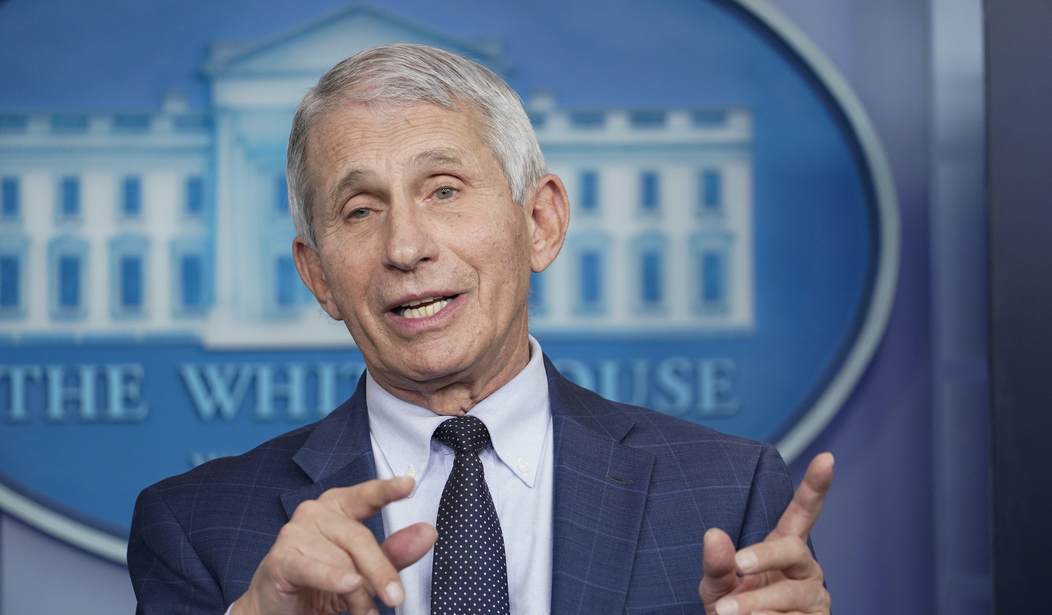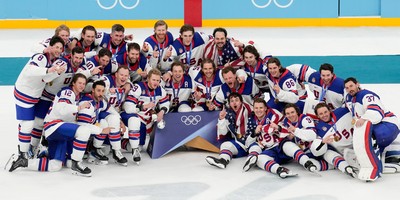Anthony Fauci has been one of the most polarizing figures during the Covid-19 pandemic. He flip-flopped so many times on significant issues that Americans lost confidence in him long ago, prompting conservative radio host Hugh Hewitt to confront him about stepping down last year.
"Is there a point where you will say, 'I do more harm than good because people don't listen to me anymore,' and step aside?" the radio host asked him.
Fauci, 81, was obstinate: "No. Absolutely unequivocally no, Hugh. Sorry."
Now, however, he has changed his tune.
In an interview with POLITICO, Fauci, who's been director of the National Institute of Allergy and Infectious Diseases since 1984, revealed his plan to retire by the end of President Biden's current term.
Recommended
He also acknowledged he couldn't hold out for the end of Covid-19 since it has become endemic – an admission POLITICO called "startling" given his previous claims that "the country could flatten the curve and achieve herd immunity, first through social distancing and then vaccination."
"We're in a pattern now. If somebody says, 'You'll leave when we don't have Covid anymore,' then I will be 105. I think we're going to be living with this," Biden's chief medical adviser acknowledged.
Though Fauci said he is preparing for the attacks that will likely come if the GOP takes the House or Senate, this possibility did not factor into his decision to retire.
"They're going to try and come after me, anyway. I mean, probably less so if I'm not in the job," he said. "I don't make that a consideration in my career decision."
Despite his role in the Covid-19 pandemic response during two administrations, Fauci told POLITICO that it's actually his work on HIV/AIDS he wants to define his legacy.
That work, he is quick to point out, always had bipartisan backing outside of Reagan’s hesitation. With Fauci’s urging, Trump pledged in a State of the Union address to end America’s HIV epidemic. President Barack Obama released the federal government’s first national HIV/AIDS strategy in 2010. And with President George W. Bush, Fauci says he accomplished what “may be the most impactful thing I have done in my career” – the founding of the President’s Emergency Plan for AIDS Relief, or PEPFAR, a global program the State Department estimates has saved 21 million lives.
In the decades since Fauci began work on HIV/AIDS, treating and preventing the virus has transformed. People live for years with HIV or can prevent transmission with daily pills and now, injections every few months. But an HIV vaccine remains elusive and, Fauci says, likely many years away. (POLITICO)
"I don't think there is anything else that I, Tony Fauci, can do except leave behind an institution where I have picked the best people in the country, if not the world, who will continue my vision," he said. "I don't need to be there for HIV, because we have enough good people that could carry it on."
Conservatives have been critical of his missteps on HIV/AIDS, too, however.
Early in the 1980s AIDS epidemic, the New York Times reported the terrifying possibility that the virus could spread to children through “routine close contact”—quoting from a study by Anthony Fauci. Life magazine wildly exaggerated the number of infections in a cover story, headlined “Now No One Is Safe from AIDS.” It cited a study by Robert Redfield, the future leader of the CDC during the Covid pandemic, predicting that AIDS would soon spread as rapidly among heterosexuals as among homosexuals. Both scientists were absolutely wrong, of course, but the false alarms didn’t harm their careers or their credibility. (City Journal)
The American Institute for Economic Research also had a deep dive about this "close contact" claim.
Although his speculative commentary had triggered a national media frenzy over unfounded fears of AIDS transmission through routine contact, Fauci himself emerged relatively unscathed from the episode. He did so by deploying an all-too-familiar tactic from his Covid-19 commentary: the political pivot, executed in front of a fawning news media.
On June 26, less than two months after his JAMA article appeared, Fauci publicly contradicted its most irresponsible claim – albeit without ever acknowledging his own central role in promoting that claim to begin with. As he told the Baltimore Sun, “It is absolutely preposterous to suggest that AIDS can be contracted through normal social contact like being in the same room with someone or sitting on a bus with them. The poor gays have received a very raw deal on this.” In short, Fauci flip-flopped with the political winds and the press barely even noticed.
Ann Coulter has also written about the times Fauci was wrong about HIV transmission.
Speaking of which, here’s liberal Fauci on AIDS back in 1983, when he was with the National Institute of Allergy and Infectious Diseases, but not yet its director: "As the months go by, we see more and more groups. AIDS is creeping out of well-defined epidemiological confines.” (It didn’t.)
In 1987, Fauci warned that French kissing might transmit the AIDS virus, saying, “Health officials have to presume that it is possible to transmit the virus by exchange of saliva in deep kissing. That presumption is made to be extra safe." (Townhall)
Regarding Fauci's forthcoming departure, most Americans will probably say goodbye and good riddance.

























